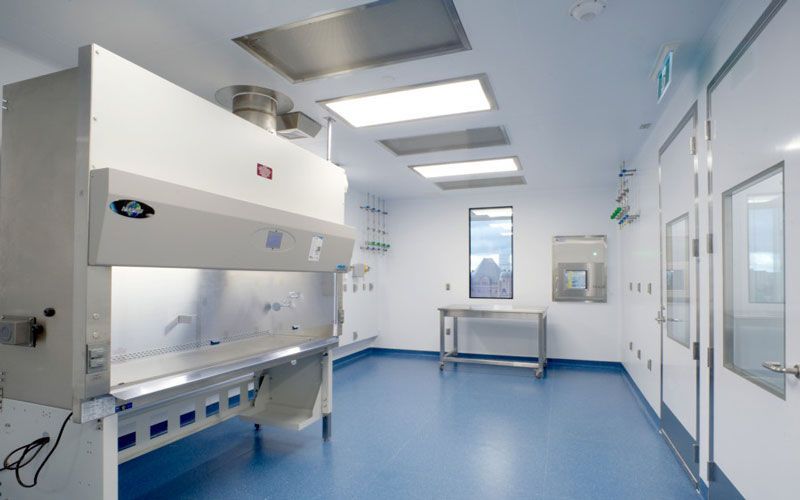Biological Safety Cabinets
What is a biological safety cabinet?
A biological safety cabinet (BSC) is a technical device used to protect workers from hazardous chemicals or biological agents and to help with quality control. Specimens are processed through an air filtration system that filters the inlet and outlet air. This device is sometimes called an incubator or a convection cabinet. The main function of the cabinet is to prevent exposure to infectious particles and limit drafts. A portion of the air is filtered through a HEPA filter and then returned to the room environment, which helps remove airborne pathogens without affecting the chemical reactions inside. All operations must limit aerosol generation and avoid leakage. Activities such as centrifugation, stirring, sonication, or opening containers with differential pressure are likely sources of air flow.
The main purpose of using a biological safety cabinet

Biological safety cabinets are used to protect laboratory personnel and the environment from pathogens. All air emissions during operations are filtered through HEPA membranes, removing bacteria and viruses before being released.
Laboratory personnel: Air is filtered through a HEPA filter, which helps prevent the user from being exposed to air streams containing biological agents inside the cabinet.
Sample protection: One-way air circulation system combined with HEPA filter prevents sample from being contaminated by room air.
Laboratory/environmental: HEPA filtered exhaust air from the cabinet exit, preventing harmful biogases from being released into the surrounding environment.
Structure and operating principle of biological safety cabinets
Biological safety cabinets consist of many components such as the cabinet body, convection system, glass shield, work table and cabinet legs. The most important is the HEPA filter system.
HEPA (High Efficiency Particulate Air) filters are fibrous filters that are capable of trapping fine dust particles in the air stream. These filters are made from a metal or wood frame, containing long, pleated strips of cellulose or borosilicate fibers to increase the filtration area.
To qualify, a HEPA filter must remove 99.97% of particles 0.3 μm in size.
- Filter fibers trap airborne particles as they pass through.
- The pleats increase the contact area, thereby increasing the filtration efficiency.
HEPA filtration mechanism includes:
High velocity particles are blocked by direct collision with the filter fibers.
Large particles are retained by inertial effects when they hit the gaps between the fibers.
Small particles are removed by direct interception.
Microscopic particles move in convection currents, hit the filter fibers and are retained by diffusion.
Some negatively charged particles (such as viruses) are attracted to the weak positive charge on the fiber surface.
International standards for biological safety cabinets
- NSF / ANSI Standard 49
This is an American standard issued by the NSF (National Sanitation Foundation), regulating the design, operation and field testing of biological safety cabinets. Products that meet this standard must be tested and certified by NSF. The tests are repeated periodically every 5 years.
NSF also establishes field testing standards to evaluate the performance and safety of cabinets, especially Class I and II biological safety cabinets.
- Standard EN 12469
This is the European standard for microbiological safety cabinets – part of the biotechnology sector. EN 12469 is issued by CEN (European Committee for Standardization) and applies to BSC cabinets of type I, II and III.
Where to buy reputable biological safety cabinets?
Are you looking for a place to buy a standard biological safety cabinet? Come to EMIN, the official distributor of major brands such as Daihan, Airtech, Labconco, ESCO... With a full range of biological safety cabinets of level I, II, III, EMIN meets a variety of needs from research to production and biomedical laboratories. Not only providing equipment, EMIN also has a team of specialized technicians to support on-site from consulting on selection, installation to maintenance. If you are wondering where to buy a reputable biological safety cabinet, please contact EMIN immediately for advice and receive a suitable quote.
-
-
-
-
-
-
-
-
-
-
-
-
-
-
-
-
-
-
-
-
-
-
-
-
